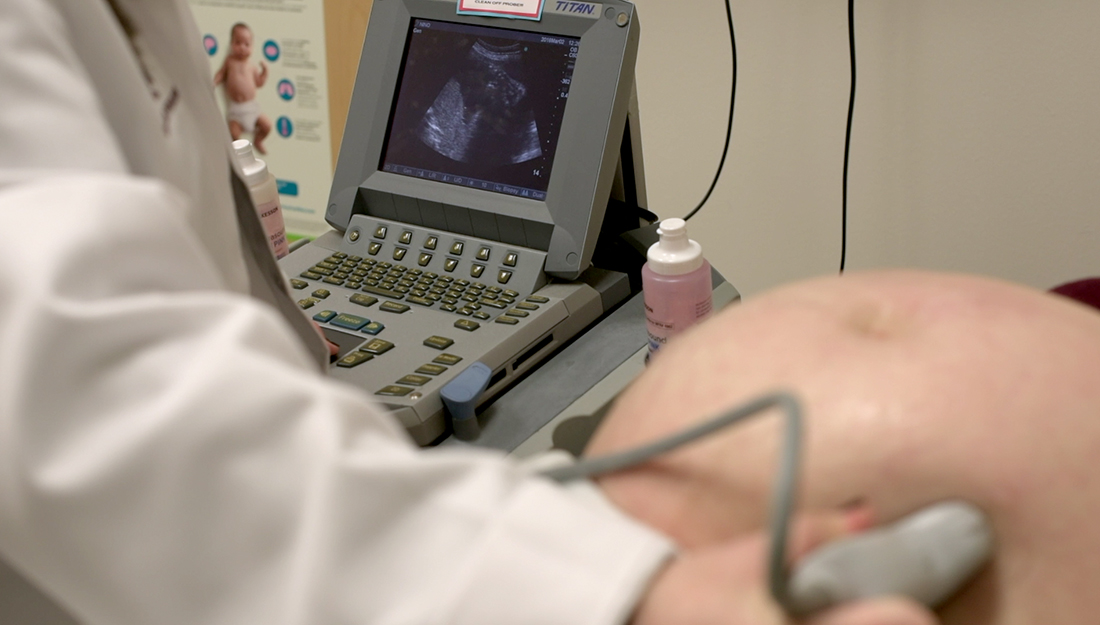- Dominic Hernandez
- Community, Giving, Medicine, Show on VR homepage, Uncategorized
Brazos Valley Prenatal Clinic partnership is a win-win
Providing life-changing care while enhancing medical education

Every year in the United States, nearly 4 million babies are born. Prenatal care is essential for both the mother-to-be and the baby, but for many mothers it can be difficult to obtain and afford. Texas has struggled with maternal health, but in Bryan, Texas the Brazos Valley Prenatal Clinic is doing its part to make sure mothers have the proper support every step of the way.
The Brazos Valley Prenatal Clinic has been a vital resource for the community since 1985, and since they opened their doors, they have served nearly 20,000 women—without any paying clients. During that time, Brazos County went from having one of the worst records for perinatal and infant mortality rates to having one of the best in the state.
This is partly because the clinic serves those who might not be able to afford care from a physician in private practice. “Everybody is welcome here at the clinic,” said Brandon Williamson, MD, clinical assistant professor at the Texas A&M College of Medicine. “Many of our patients are on Medicaid or other government programs, or can’t get care elsewhere. We want to provide great care, in English and Spanish, for their well-being and the health of their baby.”
The clinic is conveniently located next to the Brazos Transit bus terminal, in a new facility, shared with the Family Health Clinic, W.I.C., the Brazos Family Dental Clinic and other community service agencies.
“If you think about how difficult it is to go through nine months of pregnancy and have your life changed by a baby, imagine having that with no prenatal care—just walking in to a hospital when your water breaks,” Williamson said. “If you have a chance to see a woman before she delivers and give her the best opportunity for a good delivery for her and baby—it’s amazing.”
The Brazos Valley Prenatal Clinic, in collaboration with Texas A&M Physicians, cares for the mothers of more than 25 percent of children born in Brazos County. This collaboration not only serves the community, but helps educate residents on prenatal care of this population.
“Many of our residents who go on to provide obstetric care are frequently in rural or underserved areas, where such care is greatly lacking,” Williamson said. “The experiences from this clinic prepares them to meet the needs of the population, as well as inspires them to continue to find ways to give back to their communities.”
The clinic offers a wide range of services, from pregnancy testing to induction and delivery—which is done at CHI St. Joseph Health Regional Hospital or the College Station Medical Center.
“For routine pregnancies, we see them every two to four weeks, more often if there are complications, and not only try to help with medical support but educational support as well,” Williamson said. “For instance, if tests for gestational diabetes come back positive, we get them in touch with our clinical educator to learn about their condition and make the necessary changes, such as diet and sugar monitoring, to improve their health.”
Access to prenatal care is important for both the mother and the baby. According to the U.S. Department of Health and Human Services, babies of mothers who do not get prenatal care are three times more likely to have a low birth weight and five times more likely to die than those born to mothers who do get care.
Lack of prenatal care has been a scary trend for to-be mothers across the United States, especially in rural communities, and especially in Texas, with 20 percent of its residents living in rural areas. One report from the Rural Health Research Center at the University of Maryland showed that in 2014, 54 percent of rural counties in America had no hospitals with obstetric services.
“In some cases, especially in times of financial difficulty, mothers may not seek care unless it’s an emergency and at that point, it can be something more severe and much more costly, both medically and personally,” Williamson said. “If you’re wanting women to avoid problems during their pregnancy, be around for their children and have healthy babies that go on to live full lives, then having access to prenatal care gives them a great start.”
Media contact: media@tamu.edu

